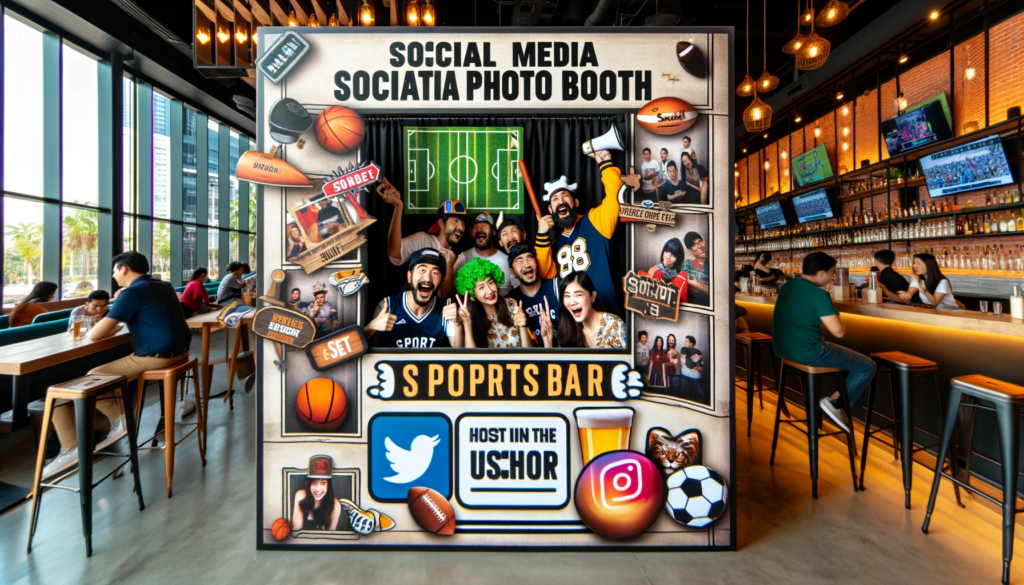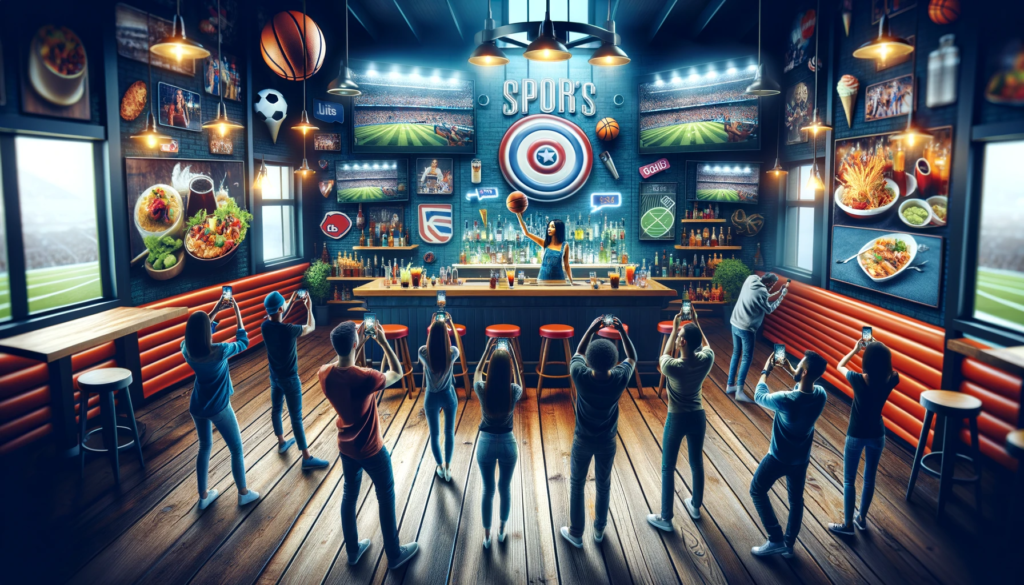Benefits of Customer Feedback for Sports Bars
Enhancing the customer experience is one of the key benefits of customer feedback for sports bars. When sports bars listen to their customers and make improvements based on their feedback, they create a more enjoyable and satisfying experience for patrons. For example, if customers provide feedback about the need for more comfortable seating options, a sports bar can invest in upgrading their furniture to provide a more comfortable environment for their customers. By implementing customer suggestions, sports bars can create a customer-centric environment that leads to improved loyalty and satisfaction.
Customer feedback is also essential for identifying areas for improvement in sports bar operations. By collecting feedback, sports bars can gain valuable insights into potential issues or shortcomings. For instance, if customers consistently provide feedback about slow service, the sports bar can take immediate steps to address the issue by improving staff training or streamlining their processes. By promptly addressing these issues, sports bars can continuously improve their operations and provide a better experience for their customers.
Moreover, by actively seeking and implementing customer feedback, sports bars show their dedication to customer satisfaction. When customers see that their opinions are valued and their suggestions are taken into account, they develop a stronger connection with the sports bar, leading to increased loyalty.

Methods for Collecting Customer Feedback
Sports bars can employ various methods to collect customer feedback, including both traditional and digital approaches.
Traditional methods such as comment cards and suggestion boxes provide customers with an easy way to provide feedback on their experience. These methods are simple and accessible, allowing customers to share their thoughts and suggestions anonymously. For example, a sports bar can place comment cards on each table or at the exit, encouraging customers to provide feedback about their experience during their visit.
Digital methods, such as online surveys and feedback forms, enable sports bars to gather feedback from a wider audience and analyze the data efficiently. Online surveys can be shared through the sports bar's website or social media platforms, allowing customers to provide feedback at their convenience. Sports bars can also send email feedback requests to customers, providing a convenient way for them to share their thoughts. For instance, after a customer visits a sports bar, they may receive an email asking them to rate their experience and provide any additional comments.
In-person methods, such as face-to-face conversations with customers and focus groups, provide opportunities for immediate feedback and personalized interactions. Sports bars can engage in conversations with customers during their visit, asking specific questions about their experience and actively listening to their feedback. Focus groups can be organized to gather in-depth insights from a select group of customers, allowing for more detailed discussions about their preferences and suggestions.
Utilizing Online Reviews and Ratings
Monitoring and responding to online reviews is crucial for sports bars to improve their operations and enhance customer satisfaction. Online reviews provide valuable information about customers' experiences and perceptions of the sports bar. Regularly monitoring these reviews helps sports bars stay informed about any issues or areas where improvements can be made. By promptly responding to reviews, both positive and negative, sports bars demonstrate their commitment to customer satisfaction and show that they value customer feedback. For example, if a customer leaves a positive review praising the excellent service they received at a sports bar, the management can respond by thanking the customer for their feedback and expressing their commitment to providing exceptional service to all patrons.
Leveraging positive online reviews for marketing purposes is another effective strategy for sports bars. Positive reviews can be highlighted on the sports bar's website and social media platforms to build trust and attract new customers. Sharing positive reviews through testimonials and case studies can serve as social proof of the sports bar's quality and popularity. For instance, a sports bar can create a dedicated section on their website where they showcase positive reviews from satisfied customers, along with their ratings and comments.
Addressing negative reviews is equally important for sports bars. Negative reviews provide valuable feedback on areas where the sports bar needs to improve. By taking steps to address the issues raised in negative reviews, sports bars demonstrate their commitment to customer satisfaction and continuous improvement. For example, if a customer leaves a negative review about the slow service they experienced, the sports bar can respond by acknowledging the issue, apologizing for the inconvenience, and outlining the steps they are taking to improve their service.

Implementing Feedback into Improving Customer Experience
Analyzing feedback data and identifying trends is crucial for sports bars to improve their customer experience. By using data analysis tools, sports bars can identify common themes and trends in customer feedback. This helps in understanding the areas that require immediate attention and improvement. For example, if multiple customers provide feedback about the poor quality of a specific menu item, the sports bar can analyze the data and make necessary changes to the menu.
Customer feedback can also guide sports bars in making operational changes based on customer suggestions. By actively listening to customer feedback, sports bars can identify areas where improvements can be made, such as changes to the menu, pricing, promotions, or service offerings. For instance, if customers consistently provide feedback about the need for healthier food options, a sports bar can introduce a selection of healthier dishes to cater to their customers' preferences.
Training staff based on customer feedback is another effective way to improve the customer experience. Feedback from customers can highlight areas where staff training is needed, such as improving communication skills or enhancing product knowledge. Providing training and guidance based on customer feedback can enhance the overall customer experience and ensure that staff members are equipped to meet customer expectations. For example, if customers provide feedback about the lack of friendly and attentive service, the sports bar can conduct training sessions to improve staff's customer service skills.
Examples of Successful Customer Feedback Strategies in Sports Bars
Case Study 1: Loyalty program based on customer feedback. This strategy encouraged customers to engage with the sports bar and provided valuable insights for improvement. For example, customers who provided feedback on their experience during a visit to the sports bar earned loyalty points that could be redeemed for discounts on future visits or exclusive perks.
Case Study 2: Revamping the menu based on customer suggestions. This resulted in increased customer satisfaction and revenue. For instance, after collecting feedback from customers, the sports bar introduced a range of vegetarian and vegan options to cater to the growing demand for plant-based food.
Case Study 3: Improving customer service based on feedback. This led to improved customer experiences and positive word-of-mouth. For example, after receiving feedback about slow service, the sports bar conducted training sessions to improve the efficiency of their staff and ensure prompt and attentive service.

Importance of Consistent Feedback Collection
Consistently collecting customer feedback is crucial for sports bars to stay in touch with evolving customer preferences and expectations. By continuously seeking feedback, sports bars can identify changing trends and adapt their offerings accordingly. This allows sports bars to make timely adjustments and improvements to maintain a competitive edge. For instance, by consistently collecting feedback, a sports bar can keep track of customer preferences and introduce new drink specials or food items that align with current trends.
Benefits of continuously improving based on customer input are significant for sports bars. By consistently seeking and implementing customer feedback, sports bars demonstrate a commitment to excellence and customer satisfaction. This commitment helps sports bars stay relevant and ensures that they continue to meet and exceed customer expectations. For example, by continuously improving their offerings based on customer feedback, a sports bar can create a reputation for being responsive to customer needs and preferences, attracting a loyal customer base.
Effective Communication and Engagement with Customers
Building relationships with customers through regular communication is crucial for sports bars. By establishing open lines of communication through newsletters, social media, and personalized emails, sports bars can foster a sense of community and encourage customers to provide feedback. This communication can also keep customers informed about upcoming events, specials, and promotions. For example, a sports bar can send out a monthly newsletter to its customers, featuring information about upcoming games, new menu items, and exclusive offers, while also encouraging customers to share their feedback and suggestions.
Encouraging customers to provide feedback through various channels is essential for sports bars. By providing multiple feedback channels such as online forms, social media platforms, and in-person interactions, sports bars make it convenient for customers to share their opinions. Clearly communicating the availability of feedback channels encourages customers to provide their input. For instance, a sports bar can prominently display information about feedback channels on their website, social media profiles, and even on table tents or menu inserts, encouraging customers to share their thoughts.
Responding to customer feedback in a timely and professional manner is crucial for maintaining positive customer relationships. Acknowledging and responding promptly to customer feedback shows that the sports bar values customer opinions and is committed to addressing concerns. Professional and courteous responses help maintain a positive image and build customer trust. For example, if a customer provides feedback about a negative experience they had at a sports bar, the management can respond by apologizing for the inconvenience and offering a resolution or compensation to show their commitment to customer satisfaction.
Strategies for Incentivizing Customer Feedback
Offering incentives for customers to provide feedback is an effective strategy for sports bars. By offering discounts, freebies, or loyalty points to customers who share their feedback, sports bars encourage customers to engage and increase the likelihood of valuable feedback. For example, a sports bar can offer a discount off the customer's next visit in exchange for completing a feedback survey.
Gamifying the feedback process can make it more engaging for customers. By creating fun and interactive feedback mechanisms, such as quizzes or contests, sports bars encourage customer participation and increase engagement. This gamification makes the feedback process enjoyable and increases the likelihood of customers providing feedback. For instance, a sports bar can create a trivia game related to sports or the bar itself, where customers can participate and earn rewards for their correct answers.
Recognizing and rewarding customers who provide valuable feedback creates a positive feedback loop and encourages further participation. By acknowledging and appreciating customers who provide valuable feedback, sports bars show their gratitude and create a sense of belonging and loyalty. Publicly recognizing customers through social media or in-person acknowledgments can further enhance this sense of belonging. For example, a sports bar can feature customer testimonials on their social media platforms, highlighting the customers' feedback and expressing their appreciation for their input.

Leveraging Social Media for Customer Feedback
Social media platforms provide a valuable avenue for sports bars to gather feedback and opinions. By creating polls, surveys, or open-ended questions on social media, sports bars can encourage customers to provide feedback. This allows for real-time engagement and a wider reach of customer opinions. For example, a sports bar can create a poll on social media asking customers to vote for their favorite game day special.
Engaging with customers through social media is important to encourage feedback. By responding to customer comments and messages on social media platforms, sports bars foster a dialogue and encourage further engagement. This creates a sense of community and makes customers feel valued. For instance, a sports bar can respond to a customer's comment on a social media post, asking for their opinion on a new menu item and thanking them for their feedback.
Showcasing positive customer experiences and testimonials on social media helps build trust and credibility for sports bars. By sharing positive customer experiences and testimonials, sports bars create a positive image and demonstrate their commitment to customer satisfaction. This encourages other customers to share their own feedback and experiences. For example, a sports bar can share a customer testimonial on social media, highlighting their positive experience and the exceptional service they received.
Conclusion
In conclusion, effective customer feedback strategies are crucial for sports bars to enhance their operations and provide an exceptional customer experience. By actively seeking customer feedback, sports bars can improve their service, ambiance, and overall experience. The implementation of customer suggestions can lead to increased customer satisfaction and loyalty. By consistently collecting feedback and implementing improvements based on customer input, sports bars can stay competitive in the industry and ensure they meet and exceed customer expectations. To achieve this, sports bars should utilize a variety of methods for collecting feedback, leverage online reviews and ratings, and implement feedback into improving the customer experience. By effectively communicating and engaging with customers, sports bars can foster strong relationships and incentivize customers to provide feedback. Leveraging social media platforms can also be a powerful tool for gathering customer feedback and showcasing positive customer experiences. By implementing these customer feedback strategies, sports bars can create a customer-centric environment and provide exceptional service to their patrons.